Embracing Island life: warm welcomes, woven bags and fond farewells
Once we arrived at Nguna, we bid farewell to Jenny and Owen and were greeted by Juanita. We walked through the village to Juanita’s and David’s house, the last one in the village. Juanita is originally from Malekula, the dog shaped island famous for its bananas and French speaking people. Some of Vanuatu’s islands have French-speaking areas and others have English-speaking areas, and when a mix, such as an English school and a French school exists, parents send their children to different schools to ensure that all languages can be spoken within the family.
When we got to the house, we met Junior and Jonathan, two of her three boys. Juanita asked if we’d like to sleep in the house – in fact, she preferred it. Mark immediately replied “YES” as sleeping in a tent without a mattress is about as comfortable as a bed of rocks. Our beds were quickly made, and we felt truly blessed to be in the house.
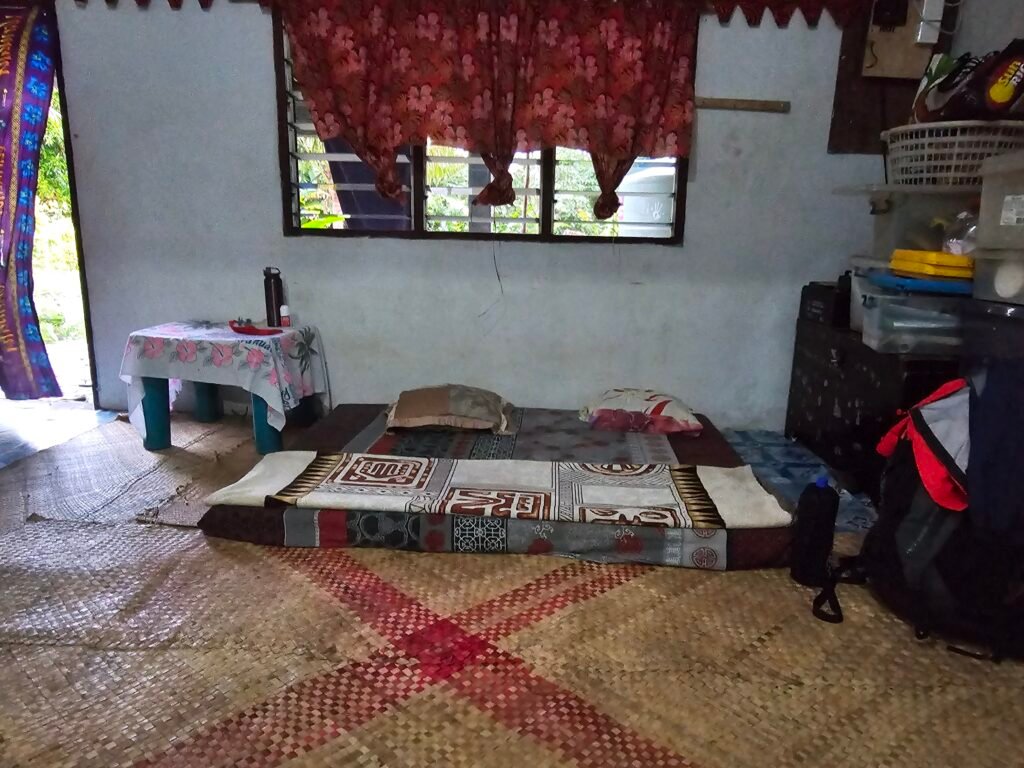
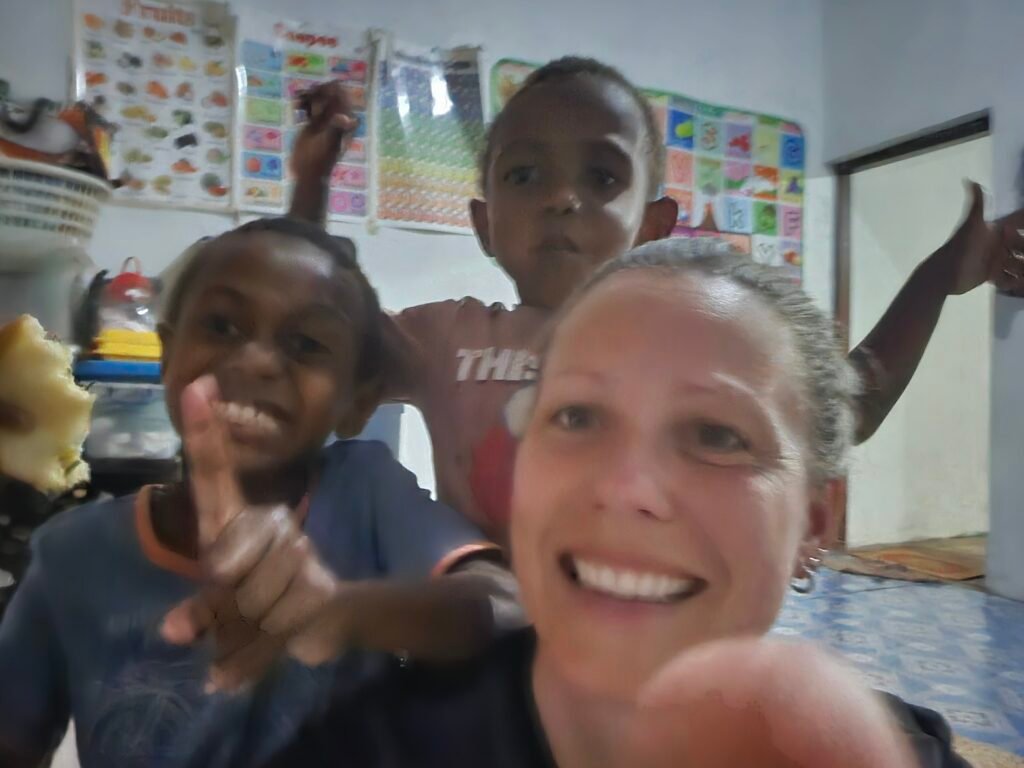
David wasn’t home yet as he was in Port Vila sorting out his superannuation from his RSE work in Australia. It’s quite common in Vanuatu for men and women to travel to New Zealand or Australia for seasonal work such as fruit picking. Even in the most remote areas, accessible only by boat, you’ll find locals who have been abroad. This allows them to build a home and support their families. Some make the trip every year, others just once. David, our host, was stuck in Australia for 3 years during COVID, but luckily, he was able to work most of the time.
It was quite funny when David called Juanita to check in. Juanita said, “Sorry, I have to go; we have friends staying with us now,” which your brother from Moso dropped off earlier. As they say in Vanuatu, we had been passed on—LOL. Juanita looked after us so well, we felt like we were being fed like royalty. Gleno, the oldest boy, made several trips to the shops to make sure we had everything we needed. We chatted late into the evening, learning more about Ni-Vanuatu culture and Juanita and David’s family history.
The next day Juanita showed us around the village and the beautiful long sandy beach at the end. We walked up to her garden and her mother’s house. We learnt that in Vanuatu when you move to another island you are assigned a family to look after you, they become your mother, brothers and sisters. This is really nice as it’s hard to be away from your family. We went back to the house for lunch, which was again so much I could’ve rolled down the hill. We all relaxed for a bit, including the cat, and Juanita continued to weave beautiful handbags. These are taken to Port Vila every time a cruise ship arrives, and she had ten more bags to make in the next two days. It was heartbreaking to hear how little money she was paid for each bag, given the amount of work she puts in. But Juanita is very grateful for the opportunity to sell her woven bags, and it helps the family so much.
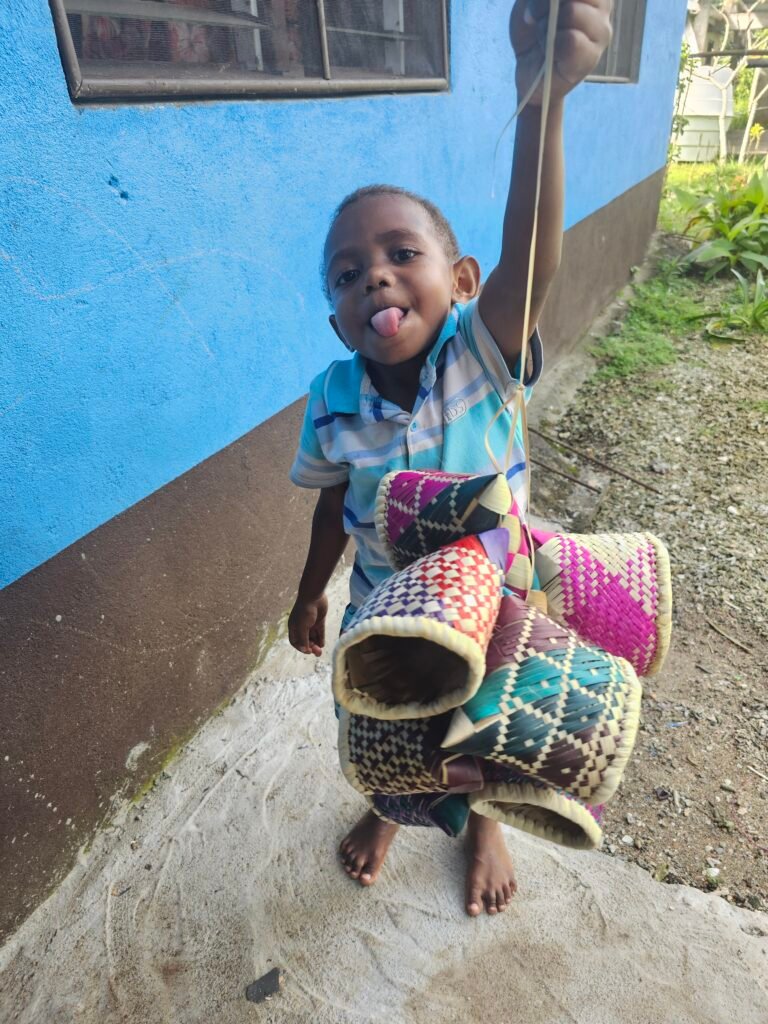
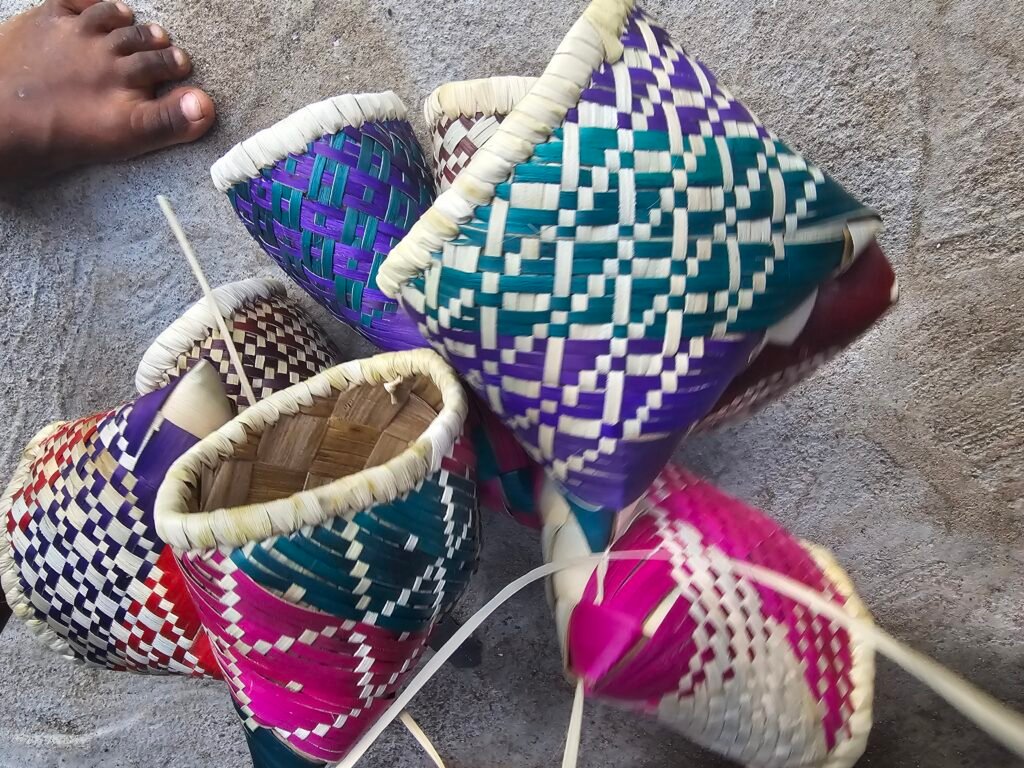
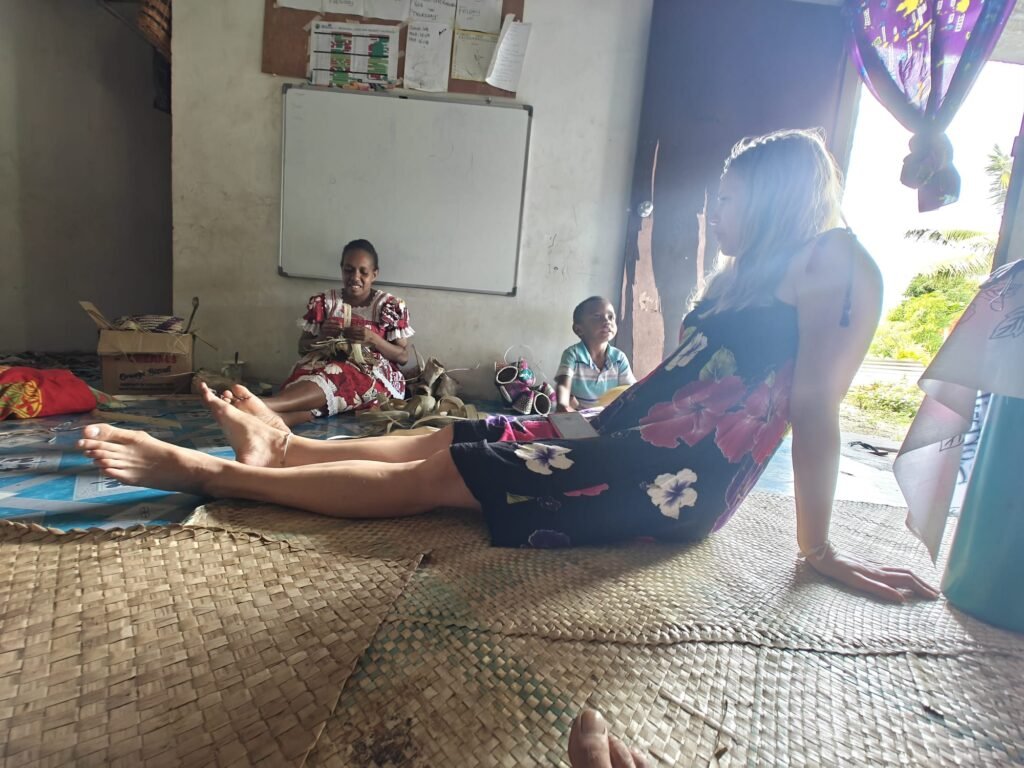
In the afternoon we went swimming with Jonathan and after school Junior joined us. We first had some fruit that Juanita brought for us and then collected some shells. We must have been in the water for at least two hours before we got cold and had to go back. Jonathan is the smallest but the most talkative, always entertaining us. As we walked past the neighbours – of course everyone was curious and looking at us – Jonathan, ever the cheeky one, would just turn and say “What’s up?” with a gesture that had us in stitches. Every day we’d play “Do you like…?” or he’d “cook” something for us. In the evenings I would get out my crossword book to play with Junior and Gleno. Shortly after we got home, David arrived from Port Vila with some treats for the kids. It was really nice to finally meet him, and he even played guitar for us in the evening. What a wonderful family – we were so lucky to be here.
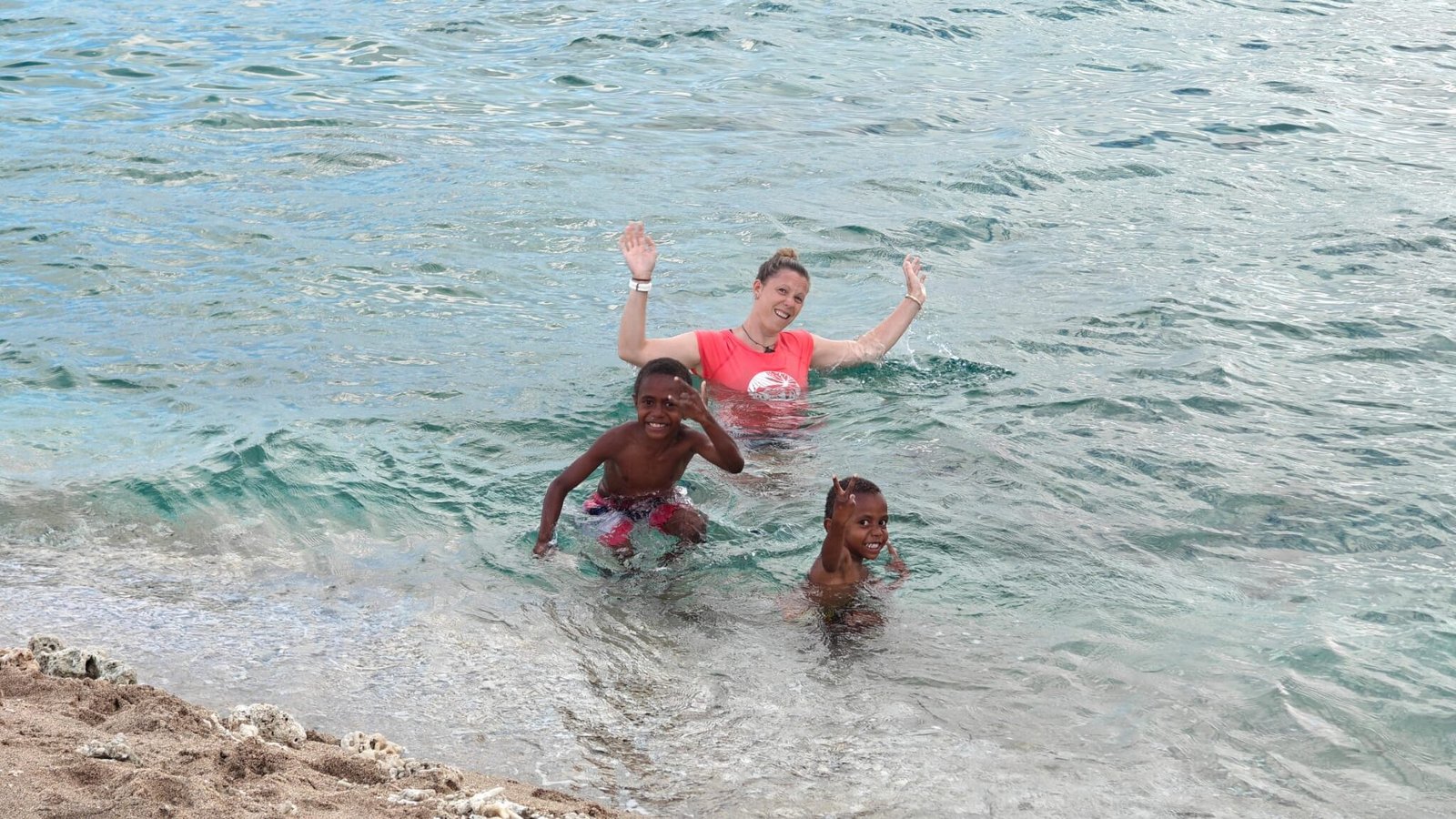
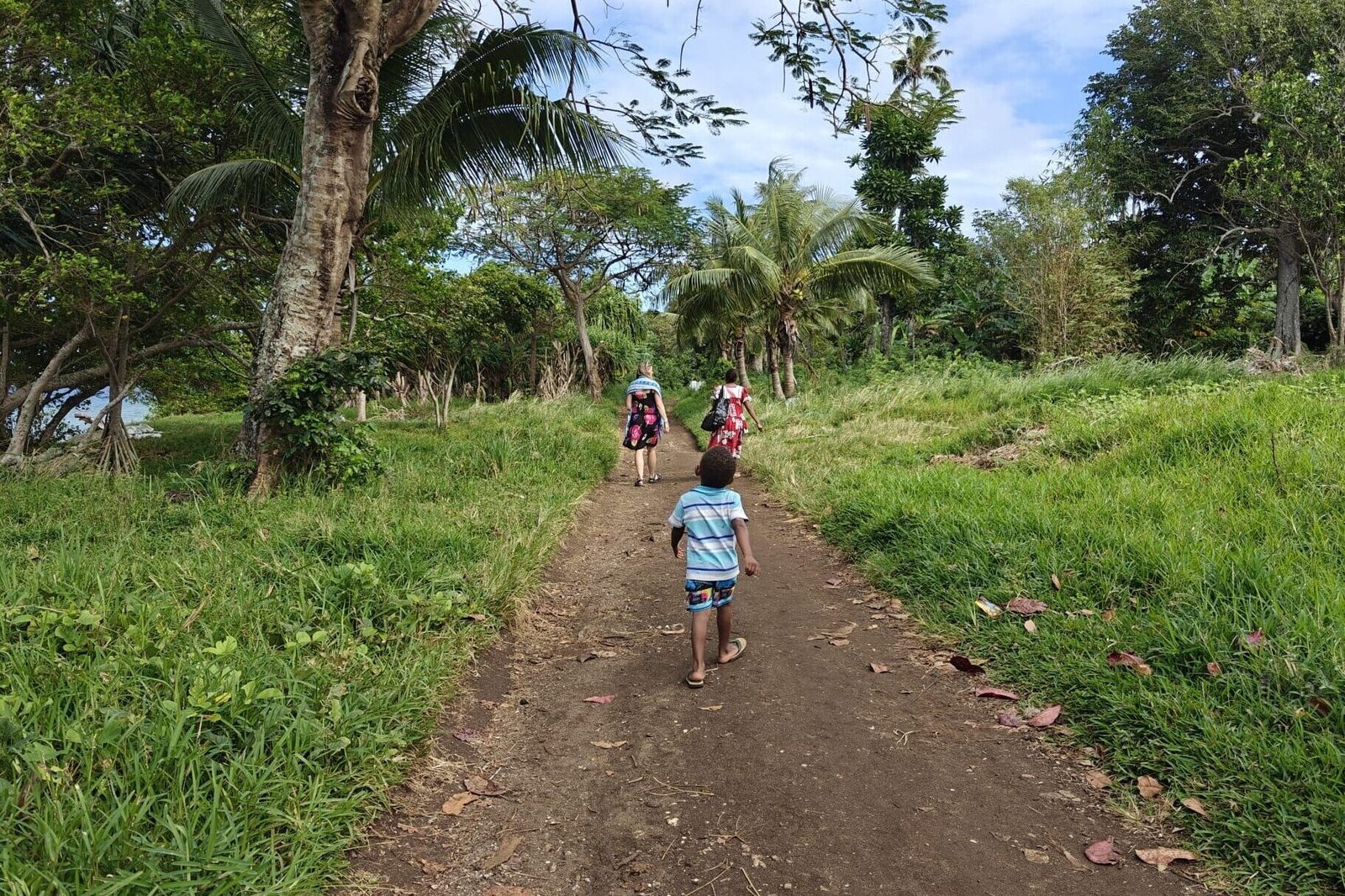
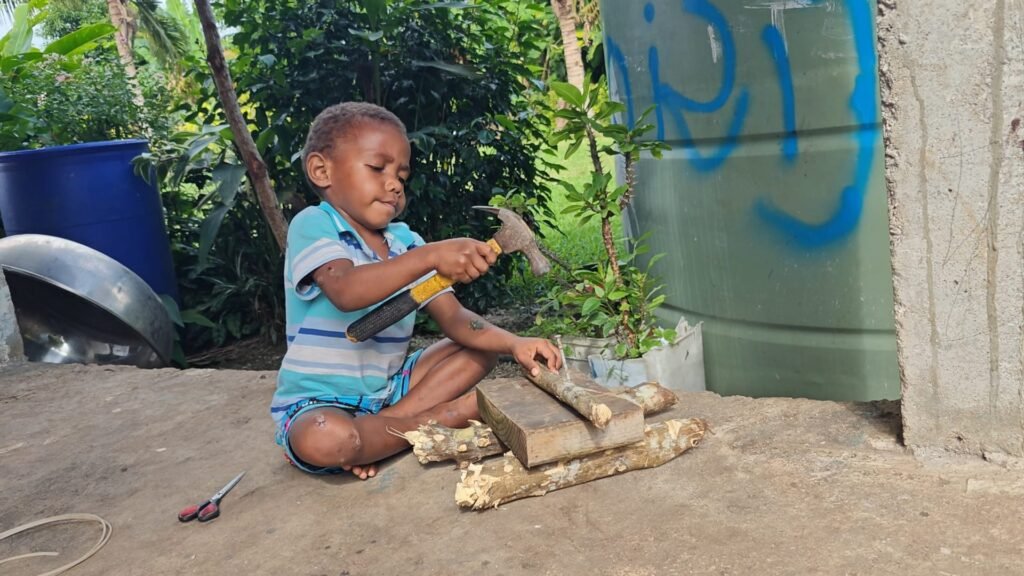
But soon, it was time to leave for our last stop, Pele Island. David had organised a boat for the next day to take us there. As it turned out, David’s mum was living on Pele, and he wanted us to stay with her. Unfortunately, she was in Port Vila for work but told the neighbour to greet us and show us where we could pitch our tent. David left for work in the morning, building a new church, but promised to return before lunch, as we had to leave due to the tide. Jonathan had a day off kindergarten and stayed with us, doing some homework with his little friend.
It was very sad to say goodbye to everyone – words cannot describe how generous, warm and welcoming everyone was and how spoilt we were. Juanita gave us each one of her beautiful woven bags. We think of them often and wish them all the best the universe has to offer. If any of our new Vanuatu families ever decide to come to New Zealand to work, they’ll always have a place to stay with us.
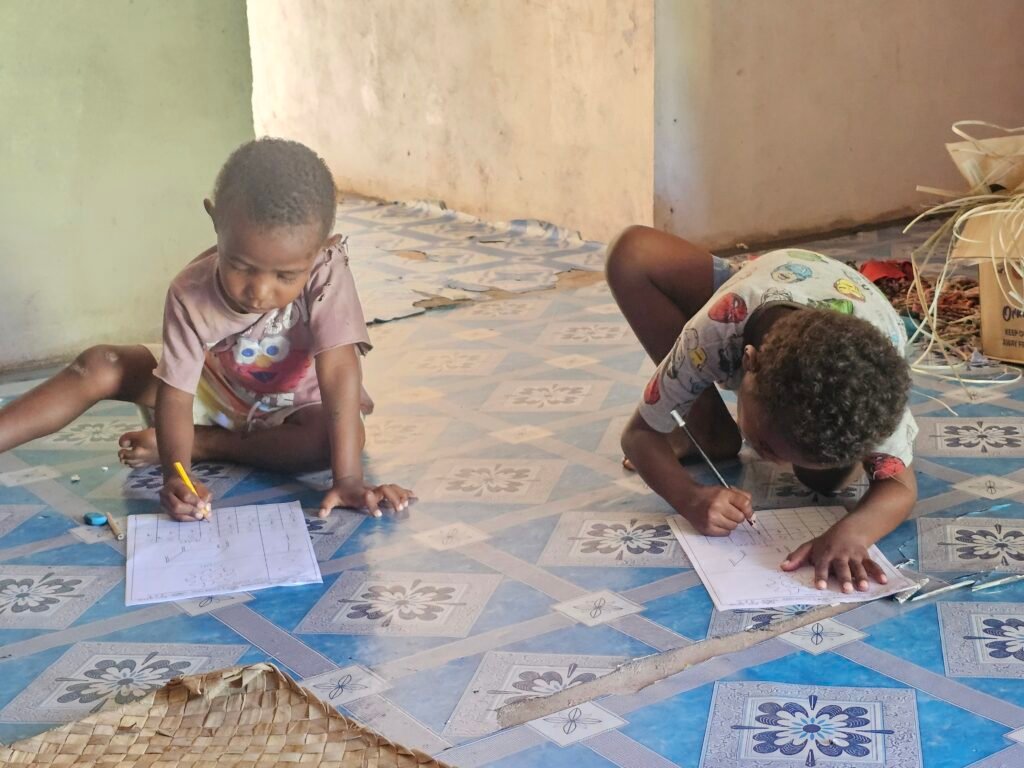

At Pele we spent most of our time swimming and walking along the beach. We found a lovely spot for our tent. David’s mum’s neighbours cleaned it up quickly and we thought sleeping on the sand would be heaven. Spoiler alert: it’s as comfortable as sleeping on concrete. Pele is quite touristy with lots of bungalow accommodation. The tourists here have running water and flushing toilets, are served food right on the beach and lounge on sunbeds all day. The white sandy beaches are spotless – at least on one side. When we walked the other way from our tent, the coast was pretty rough and looked like the big cyclone in 2015 had just hit. Huge trees, boulders, graves and lava rocks were scattered along the coast, showing just how powerful a cyclone can be.
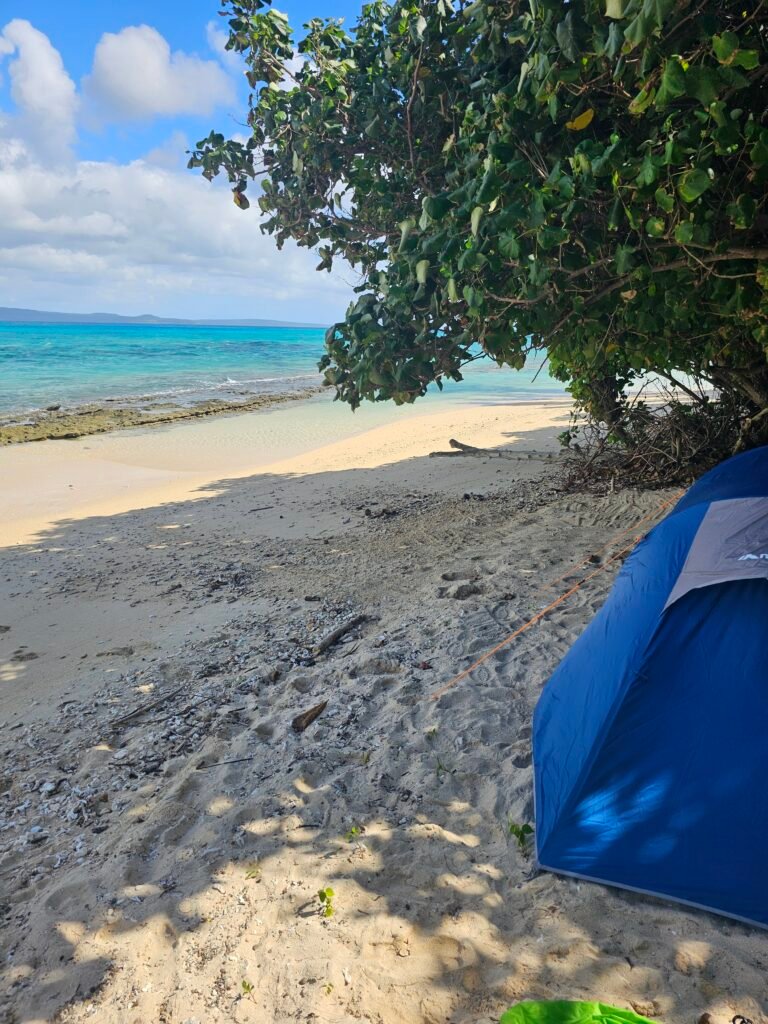
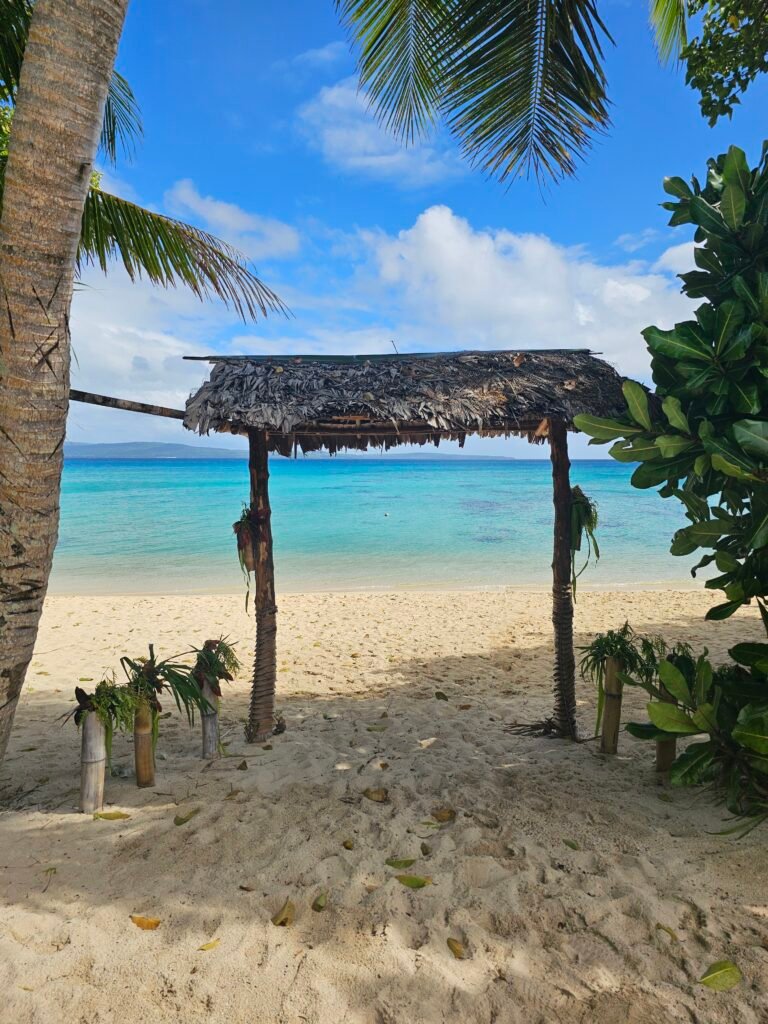
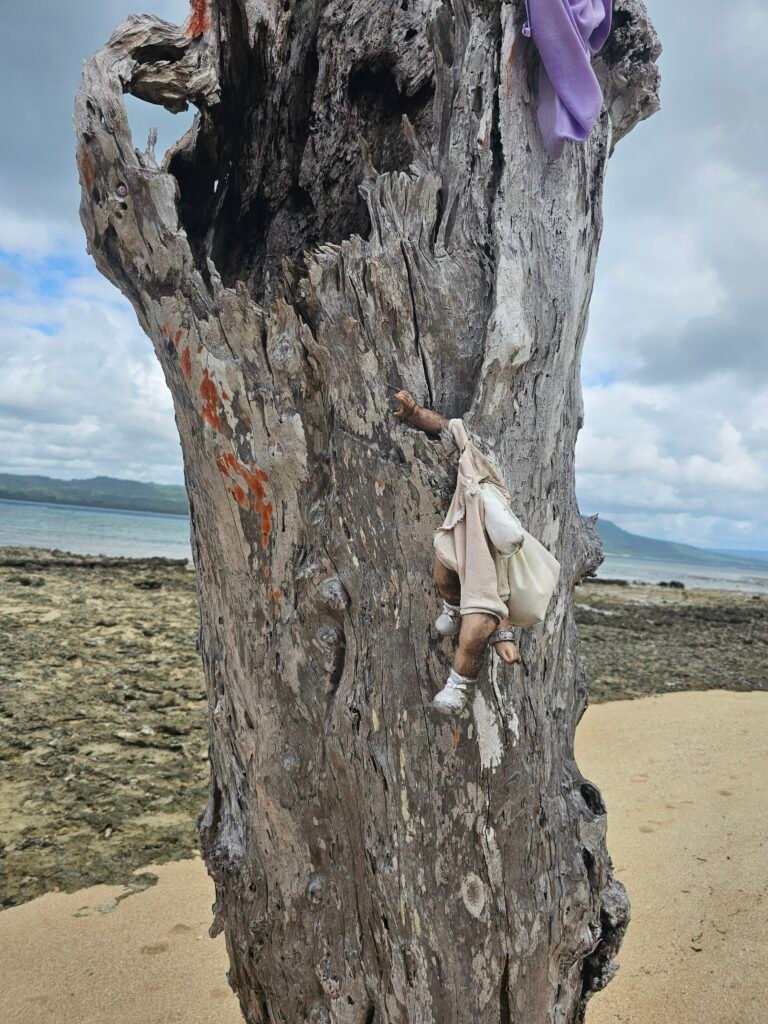
In retrospect, we should have spent another night on both Moso and Nguna, but at least we saw Pele. The next day we were due to catch a boat back to Efate at 6am, so we packed up in the dark. We couldn’t find the boat driver, and a local who was waiting with us looked for him. It turned out he was still asleep. An hour later we took another boat back to the main island. At Emua Wharf we had to find a bus to take us back, or the other option was to hitchhike. But as we were now so far north on the main island, it would have been a long way back. We found a bus with two extra seats and immediately noticed that everyone was carrying large bags of woven items. As we sat down, we spotted that Juanita was on the bus. What a lovely surprise – it was so nice to see her again. She told us that Jonathan had been asking about us all the time.
Back in Port Vila, we made a final visit to our favourite bakery before returning to the boat. Living with locals like locals was special, educational and informative. We felt looked after, cared for, and would love to return one day. Thanks again to our lovely new families on Moso and Nguna for this unforgettable time.
In case you haven’t seen it yet, our ‘Lost with the Locals’ video captures some of our onshore adventures. Check it out below